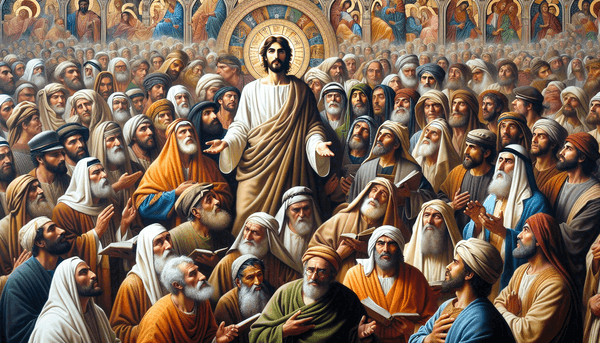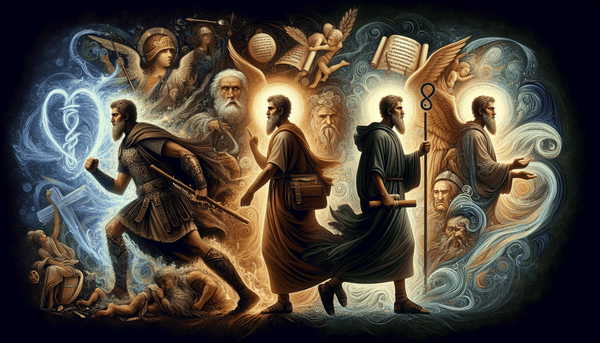The Scribes and Pharisees
The scribes and Pharisees held positions of significant influence within Jewish society, widely respected for their knowledge of the law and their role as religious leaders. As interpreters and teachers of Mosaic Law, they were considered the ultimate authority on matters of tradition and practice. However, their rigid adherence to the letter of the law often clashed with Jesus' message of love and grace. In the Gospels, they appear frequently as adversaries who challenge Jesus, exemplified in Matthew 12:38 when they demand a sign from him. Jesus criticized their focus on outward appearances and their neglect of the weightier matters of justice and mercy, as described in Luke 11:42-44. He warned his followers to do as the Pharisees say, not as they do (Matthew 23:2-3), highlighting the discrepancy between their teachings and actions. The interactions between Jesus and these religious leaders serve as a powerful reminder of the distinction between genuine faith and empty ritual.
The Fate of the Cross of Christ
The cross, the instrument of Jesus' crucifixion, holds a central place in Christian theology and devotion. While the exact cross upon which Jesus was crucified is not extant, its representation and the reverence for its relics have become a symbol of sacrifice and redemption. The tradition of venerating the 'true cross' includes fragments claimed to be from the original cross, such as those housed in the Cathedral of Notre Dame in Paris. These relics serve as tangible connections to the biblical narrative for many believers. The cross is mentioned numerous times in the scriptures, with Matthew 27:35 and John 19:17-18 recounting the events of Jesus' crucifixion. The Apostle Paul speaks to the spiritual significance of the cross in Galatians 6:14, asserting that it is the only thing worth boasting about, for it is through the cross that the world has been crucified to him and he to the world.
Conclusion
This exploration of biblical figures and teachings provides a glimpse into the heart of Christian doctrine and the life of Jesus. By understanding the significance behind the title 'Son of David', examining the role of the Pharisees and scribes, and delving into the profound lessons of Matthew 15, we gain a deeper appreciation for the complexity and beauty of the biblical message. As we reflect on these themes, may we be inspired to pursue a faith that is rooted in sincerity and truth, mirroring the Messiah who fulfilled the prophecies and exemplified divine love. To further explore the historical and spiritual context of biblical narratives, consider the legacy of Joshua and the ancient wisdom of black cumin as discussed in another insightful post.
FAQ
Q: Why do some people call Jesus 'Son of David'?
A: The title 'Son of David' is used for Jesus to highlight his lineage from King David, which fulfills the Jewish prophecy that the Messiah would come from David's line. It reflects the belief that Jesus is the prophesied savior and king.
Q: Who were the scribes and Pharisees in the Bible?
A: The scribes and Pharisees were religious leaders and scholars among the Jewish people during the time of Jesus. They were known for their strict adherence to Jewish law and their authority in religious matters. In the Bible, they are often depicted as opponents of Jesus, challenging his teachings and actions.
Q: What is the explanation of Matthew 15:1-20?
A: In Matthew 15:1-20, Jesus addresses the criticism from the Pharisees and scribes regarding his disciples' non-adherence to ritual purity traditions. Jesus emphasizes the importance of inner purity and obedience to God's commandments over external ritualism, teaching that what comes from the heart is what defiles a person.
Q: Does the cross where Jesus was crucified still exist?
A: The exact cross of Jesus' crucifixion does not exist anymore. However, various relics claimed to be parts of the 'true cross' are venerated in different parts of the world, such as in Notre Dame Cathedral in Paris. The authenticity of these relics is uncertain, but they hold significant devotional value for many believers.






